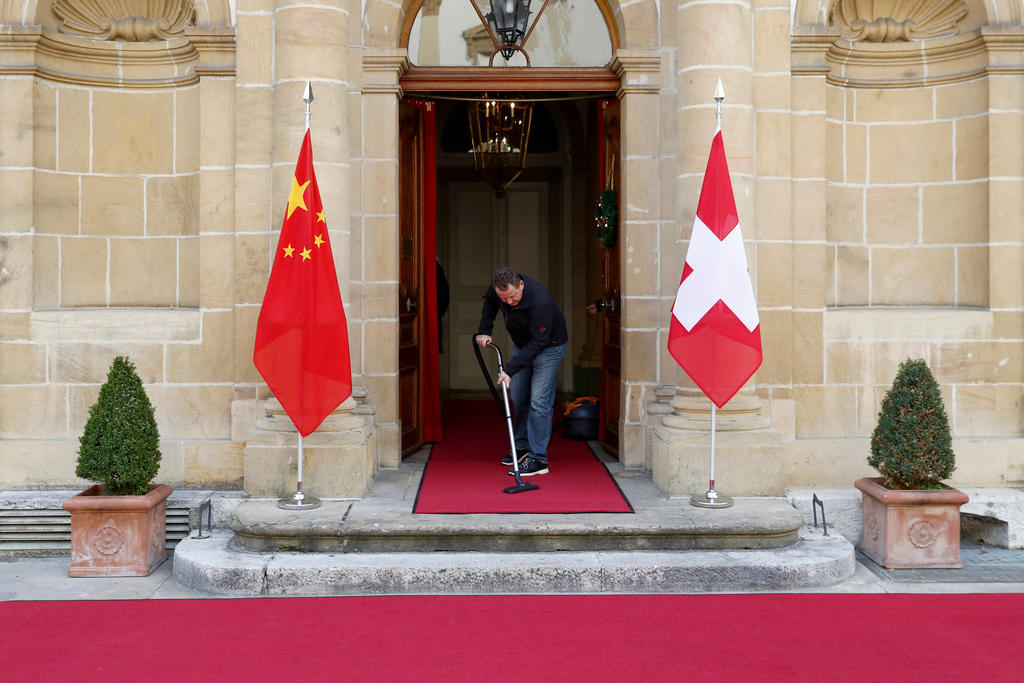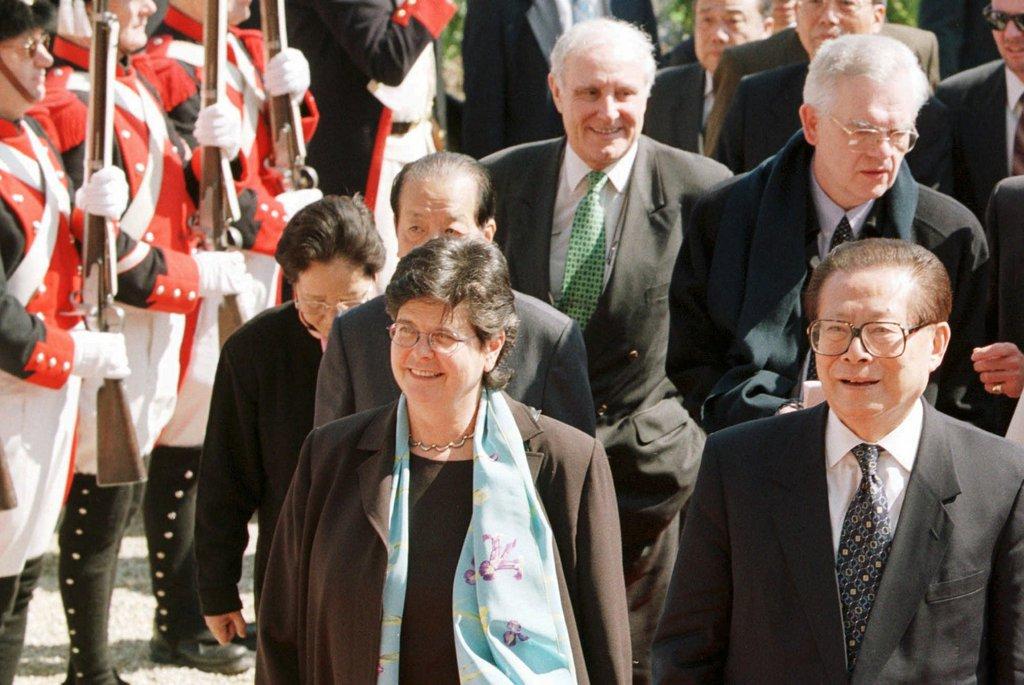Why are Swiss-Chinese relations so close?

Whether it’s the economy, finance, research, the environment, culture or even human rights, hardly a month goes by without a Chinese delegation visiting Switzerland. Bilateral relations are based on mutual respect and trust, according to one Swiss ambassador.
In April 2016, Economics Minister Johann Schneider-Ammann, who held the rotating Swiss presidency last year, travelled to Beijing. Less than 12 months later, China’s president Xi Jinping arrives in Bern on Sunday. Such a return visit at the top level is unusual.
“It’s a clear sign of the importance that China attaches to Switzerland,” says Johannes Matyassy, head of the Asia-Pacific region at the Swiss foreign ministry.
He emphasises that Xi’s visit is not just a question of courtesy, but is “thoroughly substantive”, although Matyassy doesn’t want to divulge any details. Internally, the talk is of “a few documents” that both countries will sign in order to underscore long-term cooperation.
So why does China give such weight to comparatively tiny Switzerland? Matyassy says that for China, Switzerland is a model in many areas, for example innovation.
Pioneer
Switzerland was one of the first Western countries that sought contact with China.
“Compared with other Western countries, Swiss-Chinese relations are pioneering,” Matyassy tells swissinfo.ch.
Bern recognised the People’s Republic of China in 1950 – just one year after its creation. Switzerland was also early to recognise China as a market economy in 2007.
In 2013, Switzerland became the first continental European country to sign a free-trade agreement with Beijing, and in 2016 Switzerland was one of the first countries in Europe to join the Asian Infrastructure Investment Bank (AIIB).
However, this closeness to China is frequently the subject of criticism from development organisations, which accuse the Swiss government of turning a blind eye to human rights.
Diplomatic breakdown
The early establishment of diplomatic relations created for Switzerland considerable trust among the Chinese. This played a large role in ensuring that relations survived testing moments, such as in 1999 when, during the official reception in Bern for China’s then-President Jiang Zemin, Tibetan sympathisers unrolled “Free Tibet” banners. “You’ve lost a good friend,” Jiang told Swiss politicians.

More
China’s first state visit to Switzerland since 1999
It’s taken 18 years for a Chinese president to return to Switzerland. The visit offers a chance to close that chapter once and for all.
Human rights
Since 1991, dialogue on human rights has taken place between Switzerland and China on a regular basis, most recently in May 2016. In this 14th round of talks, the focus was on the justice and penal system.
Ambassador Johannes Matyassy says he’s irritated when he reads in the media that Switzerland is playing off human rights against economic interests. “Good economic relations contribute to good relations overall with China. That then enables us to discuss hot topics for China such as human rights,” he says.
He adds that by and large Switzerland is not a country that practises “megaphone politics”, including the human rights situation in China. The relationship is based much more on mutual trust and respect. “That lets us talk about everything.”
The turning point after that diplomatic breakdown and the development of good relations was 2007, when Switzerland and China signed a memorandum of understanding “to intensify high-level political consultations and strengthen bilateral relations across a wide range of areas”, as the foreign ministry puts it.
Around 20 dialogues have since been opened and a wide range of relations rebuilt, according to Matyassy. “An unbelievable dynamic was created,” he says.
Countless visits followed, from 2010 only at government level. In 2013, five of the seven cabinet ministers headed to China – a record. Currently hardly a month goes by without a Chinese minister or an important delegation coming to Switzerland, Matyassy adds.
Worried officials
As in 1999, exiled Tibetans want to express their anger at China’s treatment of minorities.
The Swiss authorities have given permission for a demonstration to be held in Bern on Sunday, but not yet approved one planned for Geneva on Tuesday. In any case, Xi and the protestors are unlikely to come face to face.
Neither the Swiss government nor Beijing have an interest in what they would consider a diplomatic cock-up. “It could complicate cooperation in important areas of Swiss-Chinese relations,” Matyassy says.
Both sides are biting their nails.
Chinese President Xi Jinping held out the possibility of “upgrading” China’s free-trade agreement with Switzerland in an op-ed published on Friday in the Swiss newspaper Neue Zürcher Zeitung.
“We may actively explore the possibility of upgrading the Free Trade Agreement, and set a good example of promoting the free and open international trade and investment system,” he wrote.
Ahead of his Swiss visit, Xi also held out the possibility of more economic cooperation between Europe and the Asian Infrastructure Investment Bank (AIIB).
Xi praised Swiss-Sino relations, recalling that Switzerland in 1950 became one of the first Western nations to establish diplomatic ties with China.
More recently, it signed the free trade agreement between the two countries and Switzerland’s support for the internationalisation of the Chinese currency and participation in the founding of the AIIB that have cemented good relations, Xi wrote.
He also called for more “people-to-people exchanges” and “cooperation in tourism, winter sports and vocational education” between China and Switzerland.
(Translated from German by Thomas Stephens)

In compliance with the JTI standards
More: SWI swissinfo.ch certified by the Journalism Trust Initiative









You can find an overview of ongoing debates with our journalists here . Please join us!
If you want to start a conversation about a topic raised in this article or want to report factual errors, email us at english@swissinfo.ch.